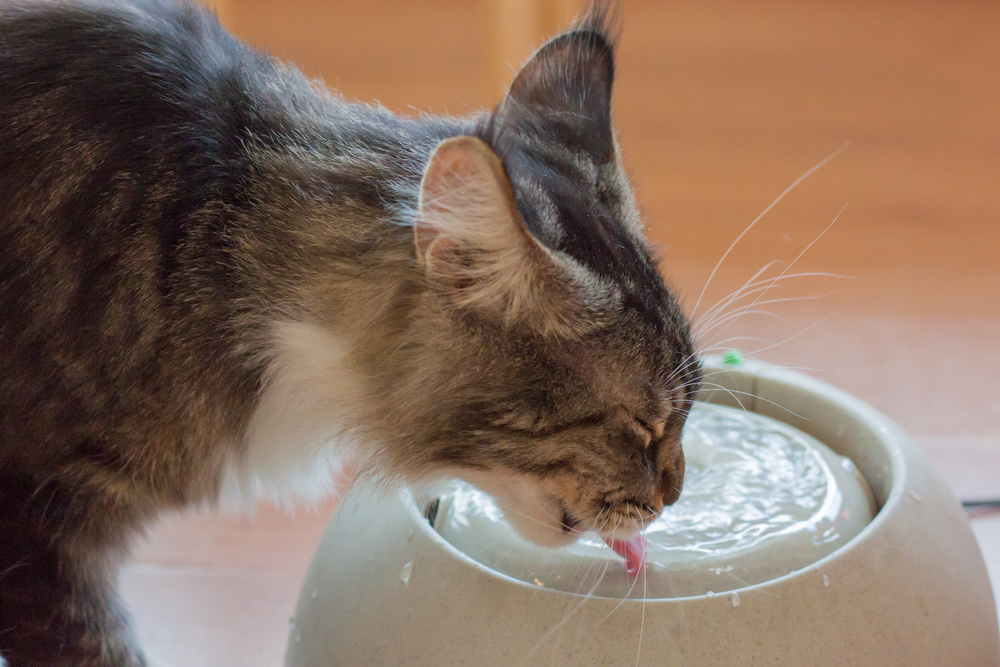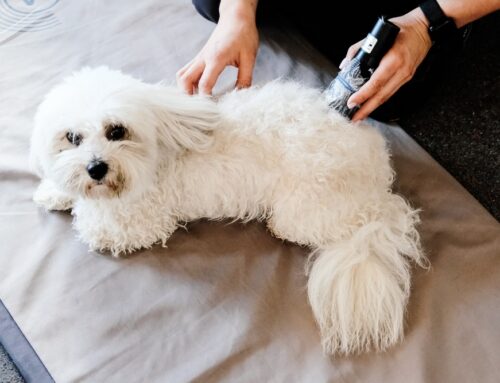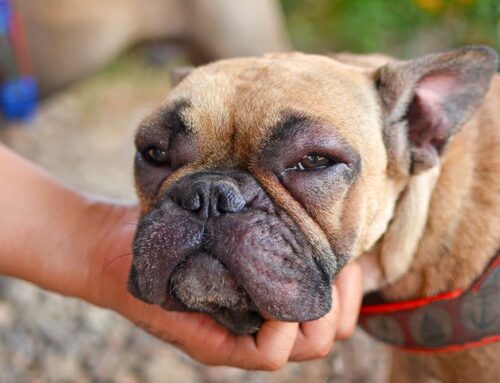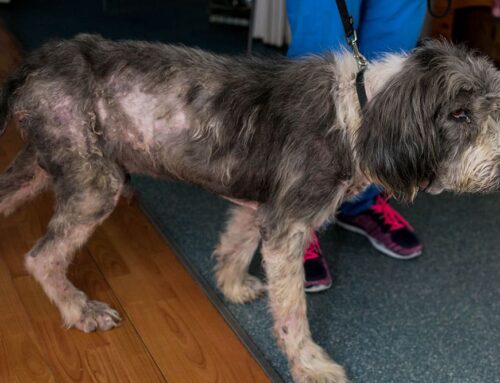Think you know your pet like the back of your hand? You may have their personality pegged and a general sense of their health, but many well-meaning pet owners neglect one important area of their pet’s overall wellbeing. When was the last time you took a good look at your pet’s teeth? Dental health is much more than keeping your pet’s pearly whites polished and their breath minty fresh. Dental care is essential for your pet’s overall health and wellbeing, and neglect can cause serious consequences for your pet. February is National Pet Dental Health Month, and our MountainView Veterinary Hospital team is highlighting the importance of your pet’s dental care and sharing tips to tackle your pet’s plaque and tartar and maintain their dental health.
Importance of dental health for pets
Periodontal disease, which results from plaque buildup on teeth, is the most commonly diagnosed dental disease in pets—almost all pets have some dental disease signs by age 3. Plaque is a sticky substance that traps bacteria near the gum line, and over time hardens into tartar. Tartar that is not regularly removed by your pet’s veterinarian will continue to build up, attracting more bacteria, and causing gum inflammation that can lead to infection, tissue erosion, and bone and tooth loss.
And, periodontal disease doesn’t affect only your pet’s mouth—left untreated, the disease can lead to significant pain and reduced quality of life, and may cause permanent organ damage, if oral bacteria spread through the bloodstream.
Dental disease signs in pets
Bad breath is often one of the first dental disease signs, but the following signs also can indicate your pet has dental problems:
- Brown or yellow buildup on the teeth
- Red, swollen gums
- Broken or loose teeth
- Excessive drooling
- Decreased appetite
- Swallowing food whole, rather than chewing
- Leaving crumbs around their bowl
- Taking food from their bowl to eat elsewhere
- Blood in their water bowl or on toys
- Shying away from being touched near their face
Regular dental examinations and cleanings for pets
Early detection and routine preventive care can minimize dental disease’s impact. During your pet’s annual wellness exam, your veterinarian will examine their teeth, inform you of any potential health issues, and likely will recommend professional and at-home cleanings.
Regular professional dental cleanings should not be overlooked. Once the bacteria have caused plaque on your pet’s teeth, and the plaque has turned into tartar, only a veterinary cleaning will suffice. Tartar is impossible to eliminate with only a toothbrush, and a brush cannot reach far enough below the gum line to eliminate oral bacteria. Up to 60% of the tooth’s structure is hidden below the gum tissue, so general anesthesia, X-rays, and special tools are needed to visualize and clean the entire teeth. As a basic rule of thumb, most pets should get a professional cleaning at least once a year, although some pets (e.g., small-breed dogs and brachycephalic pets) are at a higher risk for dental disease and may require more frequent cleanings. A professional teeth cleaning includes:
- Scaling tartar from the tooth surface, above and below the gum line
- Polishing each tooth to prevent bacteria adherence
- Probing the gum line for pockets, which indicate periodontal disease
- Irrigating below the gum line to flush away bacteria and debris
- Rinsing the entire mouth with an antimicrobial solution
At-home dental care for pets

In addition to regular dental cleanings, at-home dental care should be part of your pet’s daily routine. Use the following tips to keep your pet’s teeth, mouth, and breath clean, while keeping dental disease at bay:
- Brush your pet’s teeth daily — Daily toothbrushing prevents or slows dental disease progression, and is the best way to remove plaque from your pet’s teeth before the substance hardens into tartar. Use a pet-specific toothpaste—human toothpaste is toxic for pets—and follow with praise and treats to ensure a positive experience for your pet.
- Purchase pet dental products — Dental chews are an easy way to help minimize plaque buildup, but use only products approved by the Veterinary Oral Health Council (VOHC), or ask your veterinarian to recommend safe and appropriate pet dental products.
- Ask your veterinarian about dental diets — For some pets, especially those who are prone to dental problems, prescription dental food can help reduce dental disease. The kibble in these diets is generally larger, with an airy, fibrous texture that cleans the surface and reduces tartar buildup on your pet’s teeth.
Let our MountainView Veterinary Hospital team help your stay on top of your pet’s dental health care with regular exams and professional cleanings. Contact us to schedule your pet’s appointment.









Leave A Comment